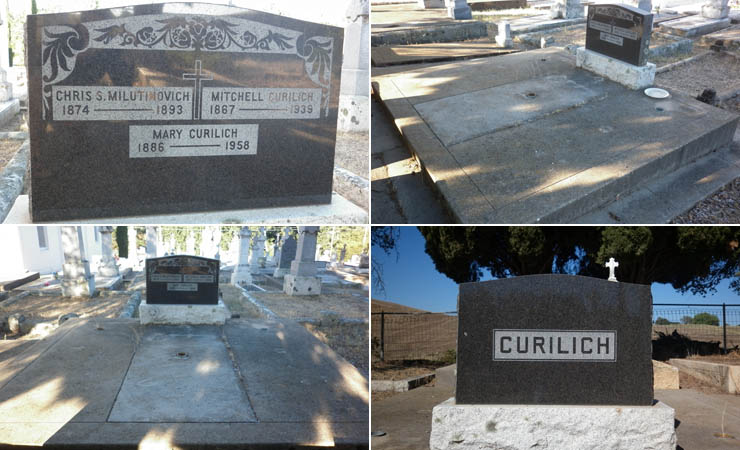Mitchell 1867 - 1939, Mary 1886 - 1956, Chris S. 1874 - 1893
CHRIS S. MILUTINOVICH
1874 ------------------ 1893
MITCHELL CURILICH
1867 ------------------ 1939
MARY CURILICH
1886 ------------------ 1958
A great man is one who collects knowledge the way a bee collects honey and uses it to help people overcome the difficulties they endure - hunger, ignorance and disease!
- Nikola Tesla
Remember, remember always, that all of us, and you and I especially, are descended from immigrants and revolutionists.
- Franklin Roosevelt
While their territory has been devastated and their homes despoiled, the spirit of the Serbian people has not been broken.
- Woodrow Wilson

Mitchell 1867 - 1939, Mary 1886 - 1956, Chris S. 1874 - 1893
CHRIS S. MILUTINOVICH
1874 ------------------ 1893
MITCHELL CURILICH
1867 ------------------ 1939
MARY CURILICH
1886 ------------------ 1958